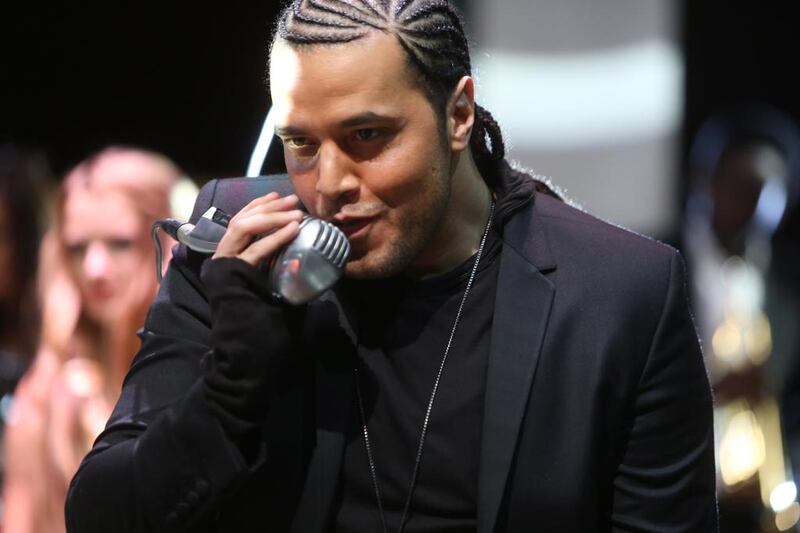A family tragedy may have slowed him down, but Abdelfettah Grini is back with a new single. After a five-year absence from the music scene due to the sudden death of his father and his need to be closer to his family, the 30-year-old Moroccan singer has returned in funk mode.
The new track, Da Habibi, is a departure from Grini's typical romantic Arabic style. Instead of the more traditional Arabian beats, a funkier flavour is on offer here with trumpets and swaggering rhythm. To complement the party vibe, the accompanying music video was filmed at Pacha Ibiza Dubai, "a good space for the dancing", as Grini tells me on the phone from his home in Jeddah, Saudi Arabia.
“This is the first time I have dancing and choreography in one of my videos – it was so much fun and something I’ve always wanted to do.”
An engineering graduate, Grini took the bold move of resigning from his entry-level job to audition for – and subsequently win – the MBC TV talent show Album in 2007. Three albums later, he cemented his star status by picking up the 2011 MTV European Music Award for Best Worldwide Act for MENA.
“After the hype of MTV, then the death of my father, it took some time for me to recover,” says Grini. “I wanted to care for my family, and I needed some time. I wanted to make sure I take the right next step for my career. And now I’m back and it’s better late than never.”
How has the response been so far for Da Habibi?
Some fans reached out and seemed surprised at first; they said: “It’s a nice style, but why this new style?” I’ve said it many times that I just want to be different, fresh, give something new. His Highness Prince Ismail was in Saudi Arabia just a day after the song’s release, and he congratulated me on the new single – I shared all this on my Facebook page as well as a picture. It was so good for me, for someone from the royal family from Morocco, from my country, to say such kind words and be so vocal with his support. It made me feel I was right to want to be more daring.
Is Da Habibi an indication of the sounds of your new album?
We still have one more single to release before the album is out. I’ve been promising my Moroccan audience for years now that I’ll be singing more Moroccan songs, and those are on there. I really hope the new sound will be enjoyable for fans. I mean, my usual style is on there as well, but there will be some surprises. This new album will have more of a western influence. It’s a combination of styles, and that’s why working with an international label like Platinum Records is perfect for me right now. We are not just focused on the Middle East – we want to reach everyone in the world, if we can.
You sing mostly in the Moroccan or Egyptian dialects. Any interest in trying something different, maybe the Gulf dialect?
I consider myself Arabic first, so I’m happy to sing in any Arabic dialect. Sure, I have an Afro and I look a bit weird, but I am most proud that first and foremost, my fans are Arabs. It’s the Arabs listening to me and I sing to them in Arabic. Every Arab home is my home – when people let me into their homes through their radios or television sets, or when someone comes up to me and hugs me and speaks to me like I’m their friend, it’s an honour.
Now that you mentioned your notorious Afro, tell us more.
I've always had an Afro. I've posted pictures of myself on Instagram as a baby, to show how my hair has always been like this. Every once in awhile, I braid all my hair for a few weeks – it helps maintain the Afro. I won't let anyone change my look, I'll be the one to decide that. I don't want to seem selfish or vain, but when I first started out, I was asked to change in so many ways, and most of all to change my hair, and I'm glad I stuck to my resolve not to. These days, fans send me pictures of themselves with their hair in braids, just like my hair in the Da Habibi music video, it means a lot to me.
• Da Habibi is available now on iTunes and the Anghami through Platinum Records. You can follow Grini on Twitter
artslife@thenational.ae





